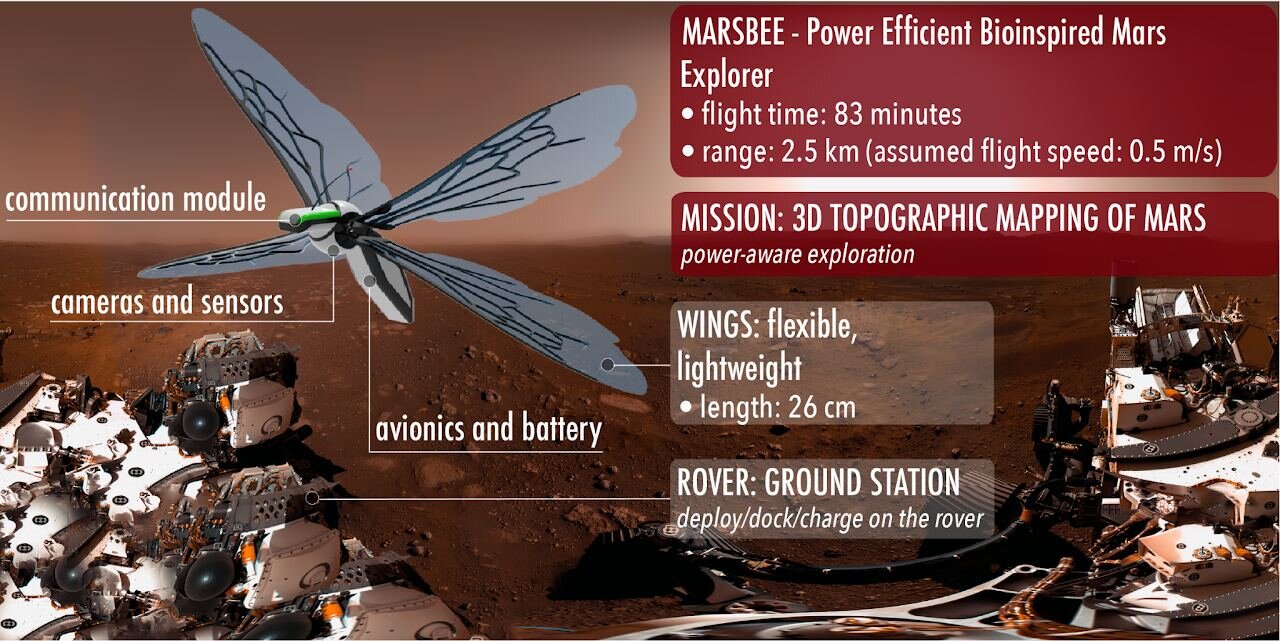Scientists have been developing a project for several years to explore Mars using drones with flexible wings. Theoretically, such robotic bees will be able to fly much better than Ingenuity. However, engineers cannot say whether such a mission will actually be realized.

Mars mission
For several years now, controlled flight in the atmosphere of Mars is not a science fiction. Despite its rather modest performance, the Ingenuity helicopter has shown that it is not such a difficult thing. And now scientists want to explore the Red Planet with some pretty fantastic robots.
In fact, this project came about even before Ingenuity made its first successful flight. It started at the University of Tokyo. However, its development was already received by the Americans. And in 2018, the project was supported by NASA.
The idea was to send a miniature flying machine with flexible wings to Mars. The principle according to which it moves resembles a bee. On Earth, such designs have been tested many times, but there were doubts about the effectiveness of such a robot on Mars. On the one hand, the gravity there is only 38 percent of Earth’s. On the other hand, the atmospheric pressure is 100 times less than on our planet.
Current project status
While robotic bees were in the theoretical stage of development, a much easier to realize project, Ingenuity, was already flying to Mars. In 2020, it made its first flight, and it became clear that it was too big and could only stay in the air for 3 minutes. But in general, the aerodynamics on the Red Planet works very well.
But a smaller machine with lighter wings would have been better. Especially since in the space that Ingenuity covered, several of them could be placed. And then the scientists thought of robotic bees again. Although there were still many improvements to be made to the design to launch them to Mars.
First of all, it was not clear how the thin and flexible wing joints would interact with the cold and Earth-like atmosphere of Mars. They also can’t shrink the batteries and control system down to a sufficient size yet. It is also not clear how robotic bees will fly without GPS.
Therefore, robotic bees will not fly to Mars in the coming years. However, scientists do not give up hope of using them in the future.
According to phys.org


